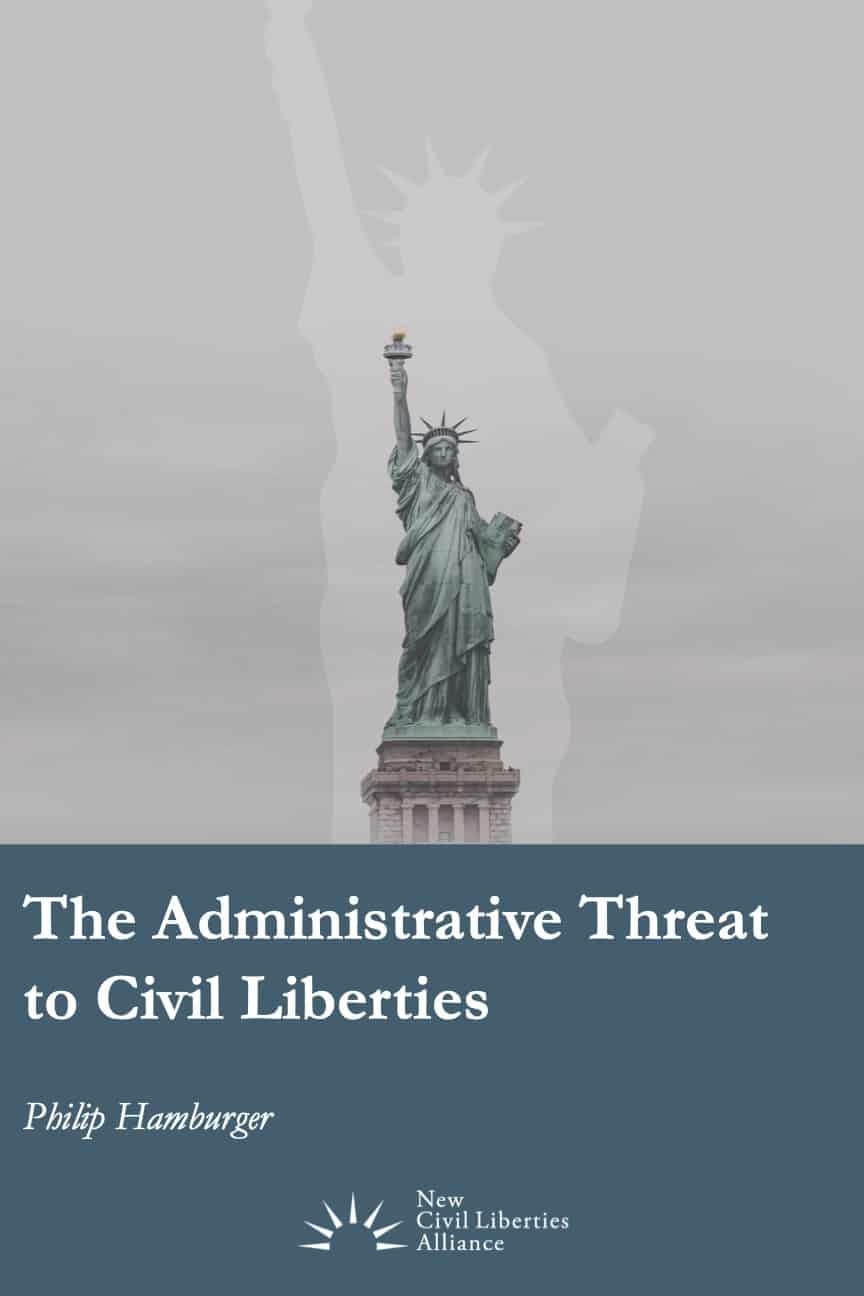Get a FREE copy of the eBook
The Administrative Threat to Civil Liberties, by NCLA President Philip Hamburger
as our #GivingTuesday gift to you:
Government agencies regulate Americans in the full range of their lives, including their political participation, their economic endeavors, and their personal lives. As a result, administrative power is a pervasive feature of American life.
Is Administrative Power Constitutional?
As a subscriber to NCLA’s email list, you know the answer, but do you know why? The Administrative Threat to Civil Liberties is your handbook to answer this question. After reading it, you’ll have a better understanding of how the Administrative State came to be and why administrative power is the greatest threat to civil liberties of our time.
Look inside 
The Administrative Threat to Civil Liberties
Philip Hamburger
Administrative power is the greatest threat to civil liberties in our era. Traditionally, the most systematic threats to civil liberties came in attacks on particular groups, and this remains a problem. But increasingly, there are also broader threats, which affect the civil liberties of all Americans, and administrative power is the primary example of this broad sort of danger. No single development in our legal system deprives more Americans of more constitutional rights. It is therefore not an exaggeration to say that it is our greatest threat to civil liberties.
Not an Economic Critique
At the outset, I must emphasize that this is a legal critique of administrative power, not an economic critique. Most complaints about administrative power are economic. It is said to be inefficient, dangerously centralized, burdensome on business, destructive of jobs, stifling for innovation and growth, and so forth. All of this is painfully true, but economic complaints are not the entire critique of administrative power. There are also constitutional objections, and the economic critique does not fully address these.
Indeed, the economic critique tends to protest merely the degree of administrative regulation, and it thereby usually accepts its legitimacy—as long as it is not too heavy-handed on business. It is therefore no wonder that the economic criticism has not stopped the growth of administrative power.
Excerpt From: Philip Hamburger. “The Administrative Threat to Civil Liberties.”



